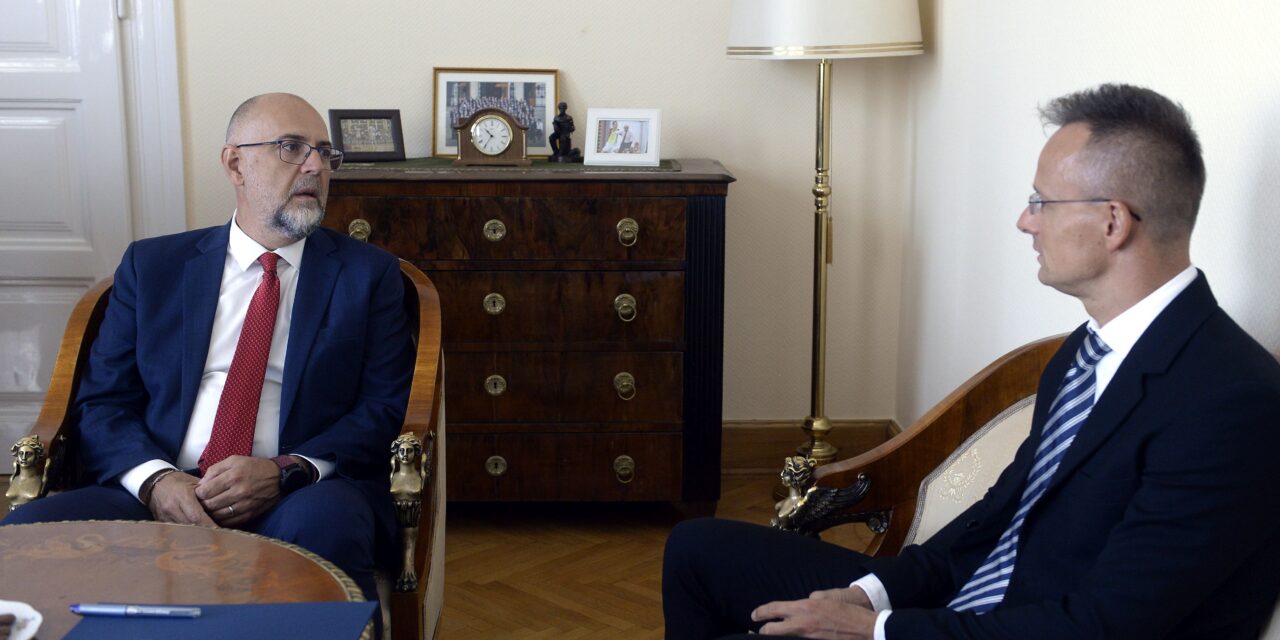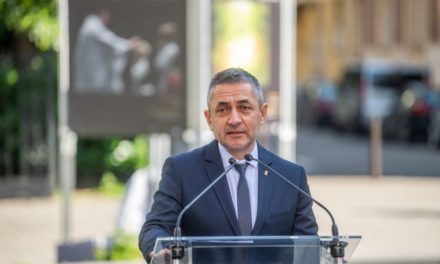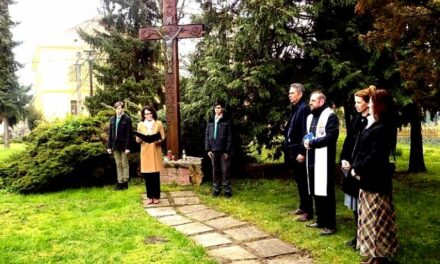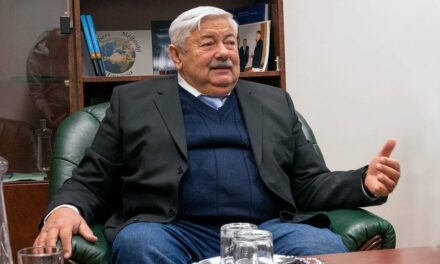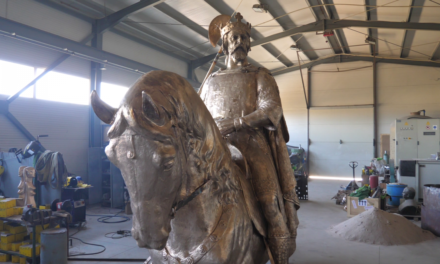Budapest and Bucharest do not have to agree on everything, but common points must be found, said the Hungarian Foreign Minister and the president of the RMDSZ at the meeting.
The best possible relations must be maintained with the neighboring countries, because this will also benefit the Hungarian national communities across the border, which is clearly visible in the case of Hungary and Romania as well, stated Minister of Foreign Affairs and Trade Péter Szijjártó on Thursday in Budapest.
According to the ministry's statement, the head of the ministry stated at a joint press conference with Kelemen Hunor, president of the Romanian Hungarian Democratic Union (RMDSZ), that the heart of Hungarian foreign policy is national policy, improving the situation of communities across the border, and maintaining the best possible relationship with neighboring states is an important tool for this. .
He pointed out that the government sees the national communities as a link and a resource, and this is also true for the Hungarians of Transylvania and Székelyföld. He then emphasized that the performance of the RMDSZ in itself proves the correctness of this approach, as the party's involvement significantly contributed to the development of bilateral cooperation.
This is also the strategic interest of Hungary, since the better the Hungarian-Romanian cooperation is, the better it is for the Hungarians of Transylvania and Székelyföld, he said.
Moreover, in today's crisis-laden period, we cannot afford not to have effective bilateral cooperation based on mutual respect and serving mutual interests, he added.
Péter Szijjártó reported that the next period will be characterized as years of major joint constructions, as two new highway connections will be built in 2025 and 2030, and last week an agreement was also reached on the construction of two new border crossings.
"It is important for us that the border connects us and does not separate us. And how much the border connects us in the next period, unfortunately, depends to a large extent on a European Union decision. Because the current twelve border crossing possibilities could become twenty-two in an instant, if Romania could finally join the Schengen area," he stated.
He said: Blocking Romania's Schengen accession is against the Hungarian national interest, it forces the communities living on both sides of the border to make long detours, it makes it difficult to maintain the relationship, and it also goes against economic interests.
The minister reminded that last year Austria blocked the decision in the case of Romania and the Netherlands in the case of Bulgaria.
"Interestingly, the veto used by Western European countries is a natural part of European decision-making. If a Central European country uses the veto tool, or even thinks about it, it is already a serious breach and violation of European unity," he said.
This is a double standard, the application of which would be good to avoid, so we respectfully ask Austria not to block Romania's Schengen accession this year, he added.
Finally, he stated that the government continues to support the activities of the RMDSZ in order to be successful in strengthening the Hungarian national community in Transylvania and Székelyföld.
It's good for everyone if the Hungarian community is strong, it's good for Romania, it's good for Hungary, it's good for Romanian-Hungarian relations, and we will continue to use this as the number one consideration when building our relations with Romania, and when the Hungarian national community living in Romania we support - he concluded.
Kelemen Hunor also called it essential to improve the living conditions of Hungarians in Romania in order to stop the decline of the community. For this, according to his words, it is also necessary for the relationship between the two states to be good, and for the cooperation to be pragmatic.
You don't have to agree on everything (...) the most important thing is that the two states find common points, and there are plenty of them, he emphasized.
Of course, the most important thing is the well-being and safety of the Hungarian community in Transylvania. The Hungarian government has helped a lot in recent years, in the past decade, as a paradigm shift has taken place that has put national politics on a new path, he pointed out.
The president thanked the Hungarian government for its support in the case of Schengen accession, which, according to him, would be important and timely, since Romania had already met the required criteria. He expressed his hope that progress will be made in this regard during next year's consecutive Hungarian EU presidency.
MTI

